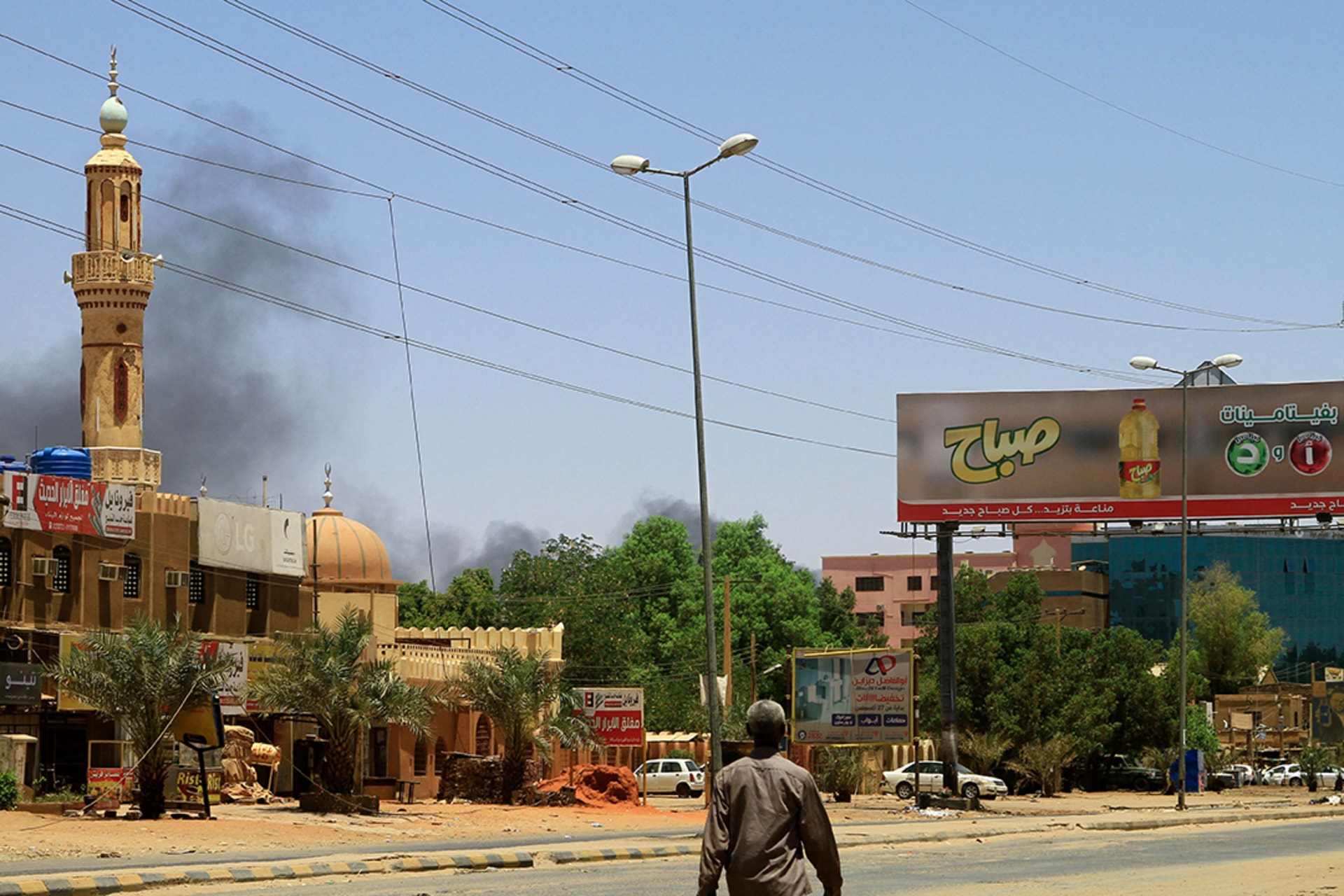Sudan in Crisis
Amid protracted conflict in Sudan, the United States should work to lower the temperature amongst external actors, and support Sudanese citizens, who remain steadfast in their aspirations for a civilian-led government.

By experts and staff
- Published
Experts
![]() By Michelle GavinRalph Bunche Senior Fellow for Africa Policy Studies
By Michelle GavinRalph Bunche Senior Fellow for Africa Policy Studies
Sudan’s suffering deepens by the hour, as self-serving army and militia forces battle for supremacy in a struggle totally divorced from the aims of the 2018-2019 revolution, in which the people of Sudan bravely stood up to one of the world’s most brutal authoritarian governments to demand democratic change. Given the rancor on both sides, and what each stands to lose if they do not prevail, it is difficult to imagine a lasting peace between them until one party is convinced it has decisively defeated the other. Certainly the notion of return to the state of play before the fighting broke out on April 15 is absurd. Even before the open warfare in the streets, that process, relied on the good faith and commitment of the very armed actors that had already staged a coup to derail the transition to civilian rule, and now have plunged the country into chaos. It lacked credibility and support domestically despite the puzzling international investment in it. Attempts to return to the same approach would align with the popular definition of insanity.
For the United States, the options to mitigate the crisis are limited. Doubtlessly, there are lessons to be learned from the policy failures of the recent past. But for now, in addition to addressing the security of U.S. government personnel and U.S. citizens in the country, the focus will be on trying to alleviate human suffering by pushing for safe humanitarian access and corridors that allow trapped civilians to flee the worst of the fighting. Despite the antagonists’ long history of disregard for the laws of war, the United States should condemn their violations, and help to collect evidence for later prosecutions.
More broadly, policy should focus on trying to prevent a long period of disintegration in Sudan with destabilizing spillover in the region. Sudan is already in a tough neighborhood, and its descent into civil war will only worsen the prospects for peace among its neighbors. One need only consider the havoc that Libya’s dissolution has wrought to get a sense of the worst case scenarios. The intense fighting in Darfur and ethnic cleavages between parties to the conflict in Sudan raises real security questions for Chad, an already fragile state with its own illegitimate, militarized leadership. In addition to the potential for renewed border clashes, a prominent Egyptian role will raise alarm bells in Ethiopia, given Egypt’s vociferous objection to the Grand Ethiopian Renaissance Dam. From South Sudan to the Central African Republic, already bad situations could get even worse.
History has shown the United States that our tools to influence recalcitrant Sudanese actors are not as potent as we might like, but that they can have some impact, especially when we act in concert with others. It is rather late in the day to imagine that targeted sanctions can rein in the generals, but surely policymakers can no longer find reasons not to impose costs on the perpetrators of the violence. Yet serious multilateral consensus may be hard to come by. While state collapse in Sudan is not desirable to any of the many external actors with interests at stake, and the United Nations, Arab League, and African Union have all urged the parties to the conflict to stop, both Burhan’s Sudanese Armed Forces and the Rapid Support Forces (RSF) have external supporters who wish to see their preferred entity succeed. Reports of Libya’s Khalifa Haftar resupplying the RSF and of Egyptian military support for General Burhan’s military forces could be just the start of the trouble. Russia, the United Arab Emirates, and Saudi Arabia all have significant ties to the RSF, a transactionally inclined entity that has proven useful to them in the past.
But even as U.S. diplomats work to dissuade other powers from throwing more fuel on the fire engulfing Sudan, time and effort should be devoted to elevating the voices and demands of Sudanese civilians who ousted the odious government of Omar al-Bashir and have never stopped trying to reshape their government or calling for justice. They will be working to resist efforts to divide Sudan along ethnic lines, and objecting to deals that mortgage the country’s future to deep-pocketed external powers willing to tip the military balance. In the midst of the smoke rising from the streets of Sudan, it’s hard to find the direction to a better future in the far distance. These voices can help to point the way.
